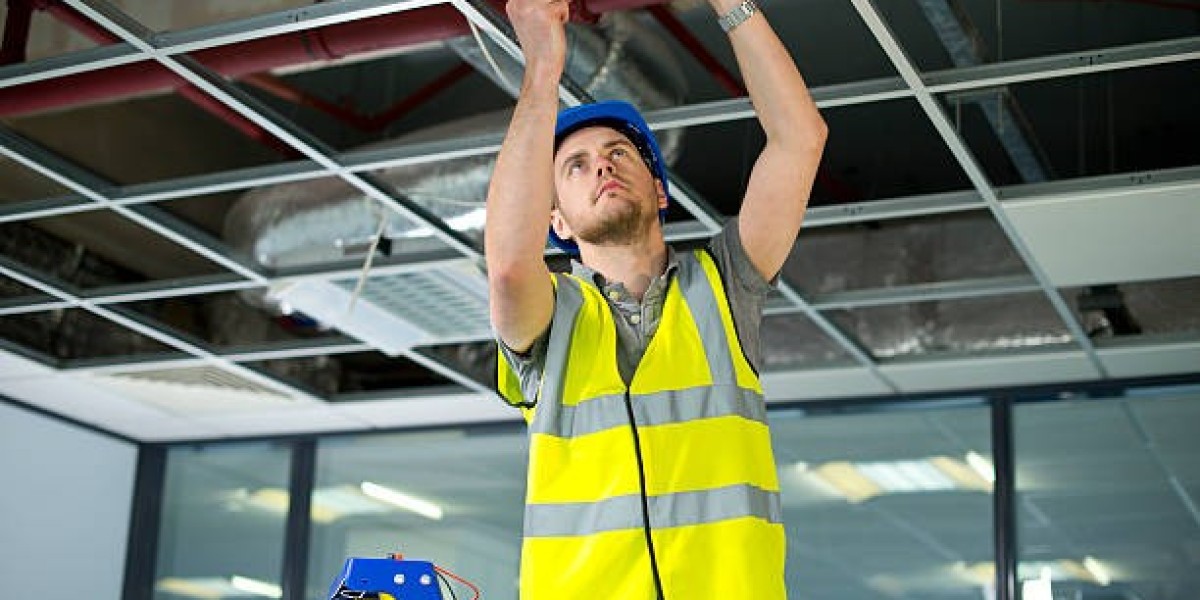Fire safety is a top priority in the UAE. With rapid urban growth and high-rise buildings, proper fire protection systems are essential. A reliable fire alarm system is one of the key components in ensuring early detection and evacuation during emergencies. This guide explains everything you need to know about fire alarm system installation in the UAE, including legal requirements, installation process, and system types.
Why Fire Alarm Systems Are Important
Fire alarm systems save lives. They provide early warning signs and help prevent large-scale damage. In commercial, industrial, and residential buildings across the UAE, installing a fire alarm is not just recommended — it is required by law.
Key Benefits:
Early fire detection
Prompt evacuation
Reduced property damage
Compliance with safety codes
Peace of mind for residents and building owners
Legal Requirements in the UAE
In the UAE, fire safety standards are governed by Civil Defence Authorities. Each emirate has its own Civil Defence department, but they all follow similar safety regulations.
Common Regulations:
All buildings must have a certified fire alarm system.
Installation must be done by licensed professionals.
Regular inspection and maintenance are mandatory.
Fire alarms must be connected to a central monitoring system in many commercial properties.
Before installation, a fire safety consultant usually prepares a risk assessment and layout plan, which must be approved by the local Civil Defence authority.
Types of Fire Alarm Systems
Understanding the different types of fire alarm systems helps in choosing the right one for your building. These systems vary in design, sensitivity, and functionality.
1. Conventional Fire Alarm System
Ideal for small buildings
Divides the building into zones
When triggered, it shows the general area (zone) of fire
2. Addressable Fire Alarm System
Best for large commercial or residential complexes
Each device (detector, call point) has a unique address
Quickly identifies the exact location of the fire
3. Wireless Fire Alarm System
No need for wiring
Flexible and easy to install
Suitable for heritage buildings or temporary setups
4. Hybrid Fire Alarm System
Combines wired and wireless systems
Offers flexibility with high reliability
Each type has its advantages. The choice depends on the building size, structure, and fire risk level.
Components of a Fire Alarm System
A typical system includes several key parts that work together to detect and alert in case of fire:
Smoke Detectors – Sense smoke particles in the air
Heat Detectors – Respond to temperature changes
Manual Call Points – Let people raise an alarm manually
Alarm Sounders & Flashers – Warn occupants with sirens and lights
Control Panel – Central unit that monitors and manages the system
Power Supply – Backup batteries to ensure system works even during power failure
These components must meet UAE safety standards and be approved by Civil Defence.
Installation Process
Fire alarm system installation in the UAE follows a structured process. Each step must align with Civil Defence regulations.
Step-by-Step:
Site Assessment
A fire safety engineer inspects the building.
Risk zones and ideal locations for detectors are identified.
System Design
A layout is created based on the type of building and required coverage.
Design includes equipment type, quantity, and zoning details.
Civil Defence Approval
The proposed plan is submitted for approval.
Only certified companies can apply for this.
Installation Work
Licensed technicians install the system as per the approved layout.
Wiring, device mounting, and connections are carefully done.
Testing & Commissioning
The entire system is tested for accuracy and response time.
Logs are created and submitted for inspection.
Final Approval
A Civil Defence officer visits the site for inspection.
Upon approval, a certificate is issued.
Maintenance and Testing
Installation is only the first step. Regular testing and maintenance are legally required in the UAE. This ensures the system remains operational.
Common Maintenance Tasks:
Monthly functional testing
Quarterly inspections
Annual system audits
Battery health checks
Detector cleaning and replacement if needed
Building owners are responsible for ensuring maintenance is performed on time.
Common Mistakes to Avoid
Many building owners and contractors make errors that delay certification or reduce system reliability. Some of the most common mistakes include:
Choosing the wrong system type
Not getting Civil Defence approval before installation
Using non-certified equipment
Poor placement of detectors
Skipping regular maintenance
Avoiding these mistakes helps ensure your building remains safe and compliant.
Choosing the Right Installer
Since only licensed fire alarm installation companies can work on certified systems in the UAE, it’s important to choose the right team. Look for:
Civil Defence approval
Experience with similar projects
Transparent pricing and compliance support
Good reviews and safety record
Conclusion
Installing a fire alarm system in the UAE is a legal requirement and a vital safety measure. With the right type of system and a certified installation team, you can ensure protection, compliance, and peace of mind. Understand the process, follow the regulations, and never compromise on fire safety.






